The government of South Korea asked its population to remain in doors over the weekend of 29 February - 01 March so as to reduce the likelihood of community transmission of the COVID-19 virus.
According to the Johns Hopkins CSSE monitor of the Global Cases, South Korea has reported 4212 active cases, with 26 deaths and 30 individuals determined to have recovered. The two primary locales where the COVID-19 is prevalent are the cities of Daegu and Cheongdo.
Travelers to South Korea should be aware the government of the United States will subject travelers from South Korea to additional screening at US ports of entry. Additionally, some countries are requiring travelers from South Korea (including those who transit) to submit to 14 days quarantine or to return to their point of origin. Travelers are urged to keep on top of the current situation concerning their routing to ensure they are aware if they are transiting Korea en route to another locale.
The Korean Center for Disease Control has an active and up-to-date website (English language) on which they share the running tally of new cases, as well as points of contact should you contract COVID-19 during your stay in Korea.
The Center notes that they have tested over 90,000 individuals and that 61,000 have turned up negative and 32,000 are pending. The test is administered free of charge by the KCDC.
COVID-19 cases by City per KCDC
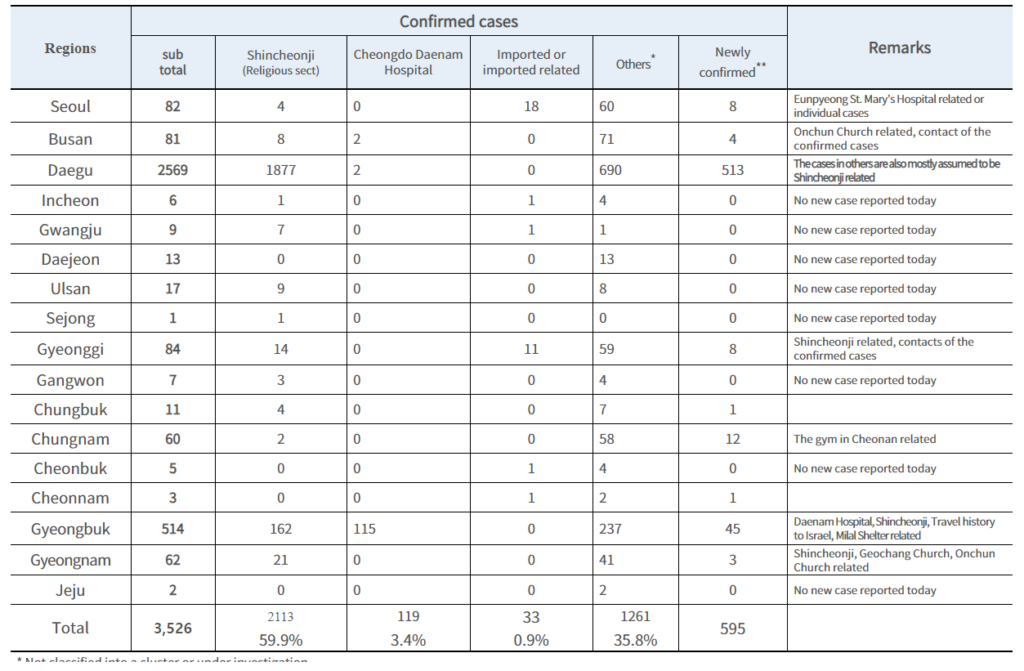
Schools in South Korea will remain closed through 23 March 2020, the government announced the morning of 02 March.
How did COVID-19 get to South Korea
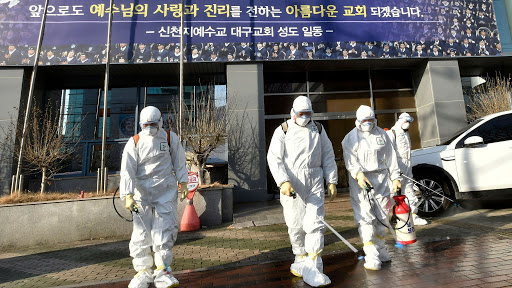
The largest concentration of COVID-19 has been attributed to a Korean religious sect, the Shincheonji Church of Jesus, who gathered for prayer sessions in Wuhan and then traveled back to Daegu, South Korea.
ADVISORIES on South Korea
US Center for Disease Control on South Korea
The CDC issued a LEVEL-3 Warning for South Korea on 29 February. The CDC urges all citizensto avoid all non-essential travel, due to widespread community transmission of COVID-19. The CDC specifically calls out the city of Daegu as being particular dangerous, especially for older adults and travelers with chronic medical conditions.
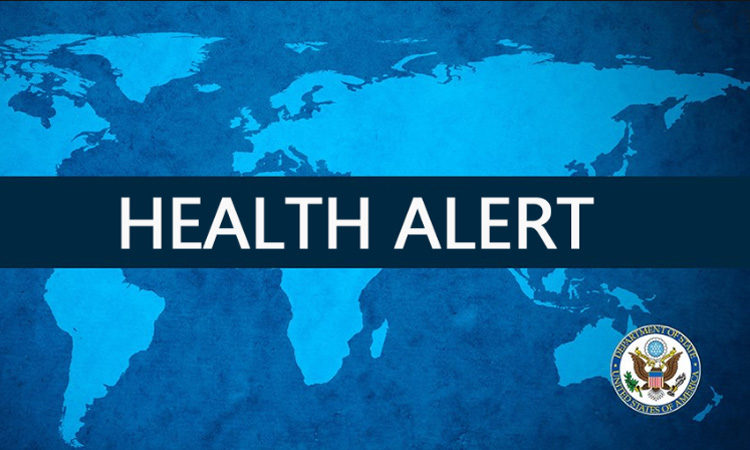

US Department of State on South Korea
ON 29 February 2019, the Department of State has issued a “Level 3 - Reconsider Travel” for much of South Korea.
For the area of Daegu they have issued Level 4 - Warning - DO NOT Travel.
The U.S. Embassy Seoul has an information page which provides up to date resources and information affecting US citizens.
Canada Global Affairs Ministry on South Korea
Canada’s Global Affairs Ministry has urged its citizens to exercise a high degree of caution when traveling to South Korea and to avoid Daegu and Cheongdo due to COVID-19.
Australian Department of Foreign Affairs on South Korea
Australian Department of Foreign Affairs has also urged its citizens to exercise a high degree of caution and to reconsider travel to Daegu and Cheongdo due to COVID-19.
COVID-19: Traveling in and out of the United States
Travelers who have been in South Korea within the past 14 days will be subjected to additional health screening at points of entry into the United States.
Securely Travel has published a post, which we are updating regularly, with resources to monitor the spread of COVID-19 and steps travelers may take to protect themselves. In addition, we have added to our menu a mirror cite for the U.S. CDC COVID-19 specifically. This mirror cite is updated when CDC updates their information automatically. Additionally, international travel advisories issued by the United States, Australia, Canada and the United Kingdom are available on Securely Travel’s International Travel Alert page.
 Travel Securely Securely Travel
Travel Securely Securely Travel
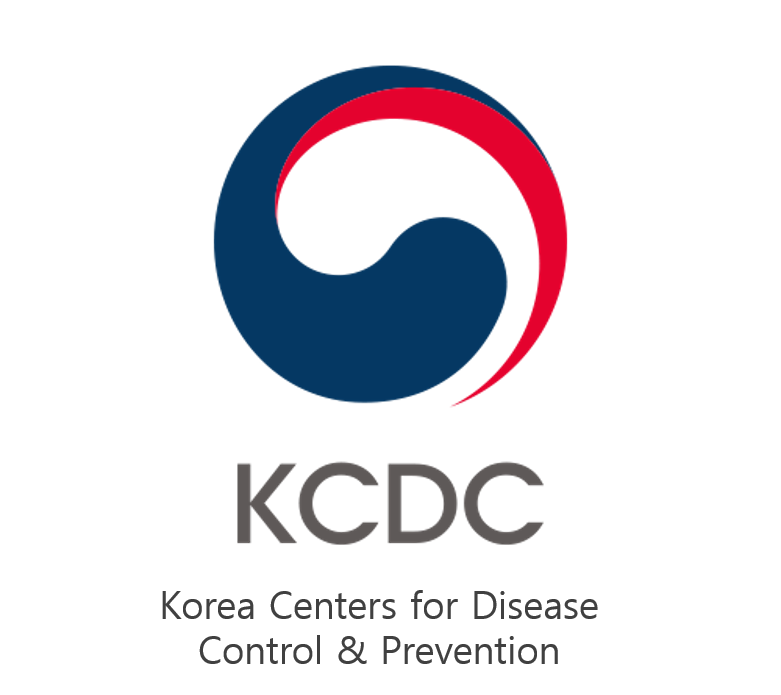

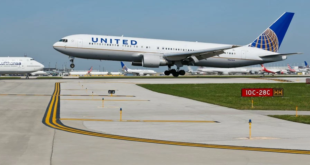
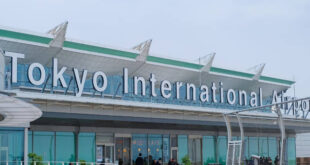


One comment
Pingback: Securely Travel Alert - 02 March 2020 | Travel Securely